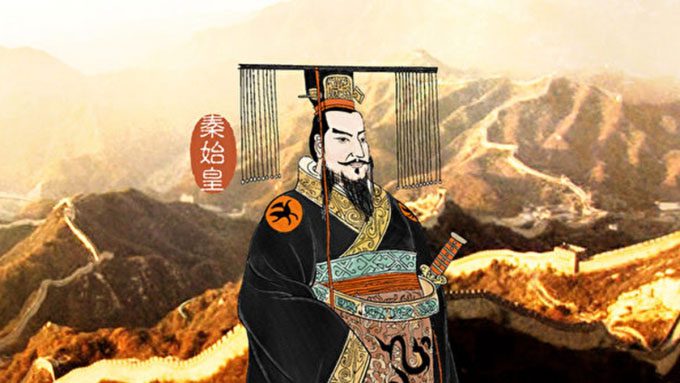Qin Shi Huang was the first emperor in the feudal history of China. He is also known by his personal name, “Ying Zheng.”
Most modern Chinese references consider Ying Zheng as the personal name of Qin Shi Huang, with Ying being the surname and Zheng as the given name. However, ancient China had different naming conventions compared to modern times.
In his case, since he was born in the State of Zhao, Zhao could also be used as a surname. According to the “Records of the Grand Historian” by Sima Qian, he is introduced with the name Zheng and the surname Zhao. Nevertheless, later on, China adopted the ancestral surname for reference, hence Ying Zheng is the name most widely accepted when referring to Qin Shi Huang, as he was a descendant of the Ying clan, the common surname of the Qin kings.
It is known that the Ying surname is one of the noble surnames and is among the eight largest surnames in ancient China.
However, in modern times, the Ying surname is extremely rare, almost “vanished without a trace.” Why has the surname of this first emperor become so uncommon in contemporary society?

Descendants of Qin Shi Huang continue to exist today, evolving into other surnames. (Illustrative image).
According to historical records, after the Qin and Han dynasties, the descendants of Qin Shi Huang mostly escaped the persecution of the subsequent dynasty. The Ying surname began to be widely used and became a common surname in society. Yet today, the number of people with the Ying surname in China is less than 10,000.
First, we must mention Qin Er Shi, also known as Hu Hei – the successor to Qin Shi Huang’s throne.
With a weak character, Hu Hei was unable to maintain his position for long. The army of the Qin dynasty was quickly taken over by Zhao Gao. What astonished people even more was that Zhao Gao forced Qin Er Shi to kill his older brother, the crown prince Fu Tu, and even spared no descendants of Qin Shi Huang, regardless of gender. As a result, the royal family of the Ying clan, which had existed for several centuries, was greatly diminished.
Some experts suggest that the descendants of Qin Shi Huang have continued to exist to this day and evolved into other surnames, including: Qin, Ying, Yin, and Zhen. In the “Hundred Family Surnames” (the first statistical book of Chinese surnames), these four surnames are very small in scale but have similar phonetic sounds.
Based on this foundation, experts can investigate the origins of these four surnames. Accordingly, people with these four surnames may be descendants of the two sons of Qin Shi Huang, Fu Tu and Hu Hei. Although the Qin dynasty left a significant mark in history, records about the family of this first emperor of China are exceedingly rare.
Some opinions suggest that to commemorate Qin Shi Huang and avoid persecution from enemies, descendants changed their surnames to others with similar phonetic sounds. However, this hypothesis lacks historical evidence to support it.
Even though the descendants of Qin Shi Huang have not yet been definitively identified, future generations remember the image of the first emperor who unified the realm, notorious for his cruelty yet undeniably recognized for his remarkable achievements.




















































